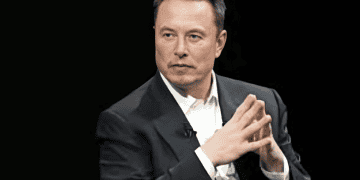Elon Musk, who was put in charge of the Department of Government Efficiency (DOGE) by President Donald Trump, has launched a major campaign to find and stop fraud in the U.S. federal government. This effort has resulted in major changes in several government agencies, sparking a debate about how to balance needed reforms with the risks of going too far.
Musk’s strategy has included significant job cuts in important areas like air safety and nuclear oversight. These actions are driven by claims of widespread fraud and inefficiency, but specific details to support these claims have not been shared publicly. Musk believes that reducing these operations will help lower the national deficit by cutting down on what he views as wasteful and corrupt practices. This approach is similar to the cost-saving measures he took during his time at Twitter.
The shake-up has created a sense of worry among federal workers, leading to reports of loyalty tests and a general feeling of unease. Critics argue that these tactics can seem authoritarian and might hurt the morale and effectiveness of government employees. There are also concerns about possible conflicts of interest, as Musk’s businesses could gain from dismantling certain regulatory agencies, like the Consumer Financial Protection Bureau, and promoting services like X Money Account.
In a significant move, Michelle King, the acting commissioner of the Social Security Administration (SSA), resigned after clashing with DOGE over access to confidential SSA records. Her exit underscores the pushback and ethical challenges public servants are facing during these changes. Leland Dudek, who is reportedly more supportive of DOGE’s anti-fraud goals, has taken her place.
Musk’s supporters, including commentator Michael Reagan, argue that strong actions are needed to tackle long-standing problems of inefficiency and corruption in the federal government. They believe Musk’s efforts align with conservative ideas about reducing the size and spending of government. However, opponents like Senators Elizabeth Warren and Chuck Schumer criticize the initiative as reckless and worry about the potential loss of essential government functions.
Adding to the controversy, some young DOGE staff members, some only 25 years old, have been given access to sensitive taxpayer information from the Internal Revenue Service (IRS) as part of efforts to find and prevent fraud. While the administration is focused on reducing waste and abuse, there are ongoing concerns about the privacy and safety of taxpayer data and the risk of it being misused.
Musk has defended his actions, saying that transparency and accountability are key to restoring public confidence in government. He argues that a government without proper oversight can threaten democratic values. Despite the controversies and legal challenges they face, Musk and his team are determined to continue their push for government reform.
As these changes take place, the country is left to ponder what the limits and approaches of government restructuring should be, how to safeguard civil liberties, and what the long-term effects of these major shifts will be on public administration.
Stay current with supply chain report news at The Supply Chain Report. For international trade tools, see ADAMftd.com.
#ElonMusk #DepartmentOfGovernmentEfficiency #DOGE #GovernmentReform #FraudPrevention #FederalGovernment #AirSafety #NuclearOversight #SocialSecurityAdministration #SSA #MichelleKing #LelandDudek #MichaelReagan #ElizabethWarren #ChuckSchumer #IRS #TaxpayerData #XMoneyAccount #ConsumerFinancialProtectionBureau #CFPB #GovernmentTransparency #Accountability #PublicAdministration #CivilLiberties #GovernmentRestructuring















